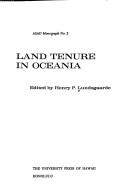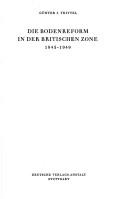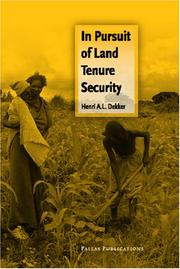| Listing 1 - 10 of 158 | << page >> |
Sort by
|
Book
ISBN: 2848678704 2848677120 Year: 2021 Publisher: Besançon : Presses universitaires de Franche-Comté,
Abstract | Keywords | Export | Availability | Bookmark
 Loading...
Loading...Choose an application
- Reference Manager
- EndNote
- RefWorks (Direct export to RefWorks)
La Révolution entreprend de rationaliser le droit de propriété en l’inscrivant dans la possession du sol. Pourtant, la situation du pays oblige à tolérer des usages qui fondent le rapport aux terres. La définition d’une nouvelle fiscalité, avec pour référence le cadastre fiscal, pousse à valoriser le propriétaire du sol, que le suffrage censitaire avantage jusqu’en 1848. Or, de la Corse au Nord, de la Bretagne à l’Alsace, des Pyrénées aux Ardennes, les cadres de vie présentent des spécificités difficiles à plier aux désirs des promoteurs d’un droit foncier privatif. Jusque dans les années 1960, cette relation conflictuelle est la matrice de la définition de l’exploitation agricole. The French Revolution undertook to rationalize the right of ownership by including it in land ownership. However, the country's situation forces us to tolerate uses that form the basis of the relationship with the land. The definition of a new tax system, with the tax registry as a reference, encourages the valuation of the owner of the land, which the censal suffrage benefits until 1848. However, from Corsica to the North, from Brittany to Alsace, from the Pyrenees to the Ardennes, living environments present specificities that are difficult to satisfy the desires of promoters of private land rights. Until the 1960s, this conflictual relationship was the matrix for the definition of farming.
History --- France (1789-1958) --- condition rurale --- agriculture --- cadastre --- propriété foncière --- rural condition --- land ownership

ISBN: 0416374204 1138149667 9786612777363 1135835543 0203010930 128277736X 9781135835545 9780203010938 0203176952 9780203176955 9780416374209 9781135835491 9781135835538 9781138149663 Year: 1984 Publisher: London Methuen
Abstract | Keywords | Export | Availability | Bookmark
 Loading...
Loading...Choose an application
- Reference Manager
- EndNote
- RefWorks (Direct export to RefWorks)
This pamphlet makes use of the most recent revisionist literature to reassess the view, much propagated by nationalist sources, that Ireland was a land of impoverished peasants oppressed by English laws and absentee English landlords.The land question has always been closely linked to the development of Irish national consciousness, and greatly exercised the minds of English politicians in the latter part of the nineteenth century. The author examines the nature of English understanding of Irish problems, which was often limited or ignorant, and attributes to it much of the unsound and in
Land tenure --- History. --- Political aspects --- Agrarian tenure --- Feudal tenure --- Freehold --- Land ownership --- Land question --- Landownership --- Tenure of land --- Land use, Rural --- Real property --- Land, Nationalization of --- Landowners --- Serfdom

ISBN: 0824803213 0824883721 Year: 1974 Publisher: University of Hawai'i Press
Abstract | Keywords | Export | Availability | Bookmark
 Loading...
Loading...Choose an application
- Reference Manager
- EndNote
- RefWorks (Direct export to RefWorks)
Land tenure --- Agrarian tenure --- Feudal tenure --- Freehold --- Land ownership --- Land question --- Landownership --- Tenure of land --- Land use, Rural --- Real property --- Land, Nationalization of --- Landowners --- Serfdom
Book
ISBN: 1789247675 1789247667 1789247683 Year: 2021 Publisher: Oxford : CAB International,
Abstract | Keywords | Export | Availability | Bookmark
 Loading...
Loading...Choose an application
- Reference Manager
- EndNote
- RefWorks (Direct export to RefWorks)
This book offers conceptual and empirical studies of land governance, focusing on land management approaches, land policy issues, advances in pro-poor land tenure, and land -based gender concerns. Topics include creating new understandings, exploring alternative approaches for land managment and land tenure and viewing vistas of tenure experiences.
Land tenure. --- Agrarian tenure --- Feudal tenure --- Freehold --- Land ownership --- Land question --- Landownership --- Tenure of land --- Land use, Rural --- Real property --- Land, Nationalization of --- Landowners --- Serfdom
Book
Year: 2021 Publisher: Basel, Switzerland MDPI - Multidisciplinary Digital Publishing Institute
Abstract | Keywords | Export | Availability | Bookmark
 Loading...
Loading...Choose an application
- Reference Manager
- EndNote
- RefWorks (Direct export to RefWorks)
Sustainable Life on Land, the fifteenth UN Sustainable Development Goal (SDG 15), calls for the protection, restoration and promotion of the sustainable use of terrestrial ecosystems. Among others, it requires societies to sustainably manage forests, halt and reverse land degradation, combat desertification, and halt biodiversity loss. Despite the fact that protection of terrestrial ecosystems is on the rise worldwide and forest loss has slowed, the recent IPBES report concluded that “nature is declining globally at rates unprecedented in human history”. Consequently, the United Nations General Assembly recently declared 2021–2030 the UN Decade on Ecosystem Restoration. There is no doubt that the current global responses are far from sufficient and significant transformative changes of societies are needed to restore and protect nature and ecosystems. Transitioning to Sustainable Life on Land presents reviews, original research, and practical experiences from different disciplines with a focus on: theoretical and empirical reflection about the necessary transformation of values, institutions, markets, firms and policies, reviews and research on protection, restoration and sustainable use of diverse terrestrial ecosystems, analyses and reporting of encouraging local, regional, national, and global initiatives. Transitioning to Sustainable Life on Land is part of MDPI's new Open Access book series Transitioning to Sustainability. With this series, MDPI pursues environmentally and socially relevant research which contributes to efforts toward a sustainable world. Transitioning to Sustainability aims to add to the conversation about regional and global sustainable development according to the 17 SDGs. Set to be published in 2020/2021, the book series is intended to reach beyond disciplinary, even academic boundaries.
biodiversity --- economics and governance --- valuation and ethics --- justice and sufficiency --- zero net loss --- cultivated landscapes --- ecosystem restoration --- conservation agriculture --- agroforestry --- peatland --- land consolidation --- land tenure --- land ownership
Book
ISBN: 3839462665 Year: 2022 Publisher: Bielefeld : transcript,
Abstract | Keywords | Export | Availability | Bookmark
 Loading...
Loading...Choose an application
- Reference Manager
- EndNote
- RefWorks (Direct export to RefWorks)
Die Etablierung von Herrschaft in Nordskandinavien durch das schwedische Königreich im 16. bis 18. Jahrhundert hat sowohl kolonialisierenden wie auch vergleichenden Charakter. Andreas Becker fokussiert auf die von den zentralen Akteuren verwendeten Vergleichspraktiken und stellt deren Produktivität als zentralen Mechanismus von Herrschaftsorganisation heraus. Dabei fasst er die dort entstehenden Beziehungen weder als einseitig-übermächtigend, noch zeichnet er Schweden als einen »guten Kolonisator«. Stattdessen hebt er die Notwendigkeit von Aushandlung in einer innereuropäischen kolonialen Kontaktzone hervor, die bisher nicht auf diese Art untersucht wurde.
Colony. --- Comparison. --- Cultural History. --- Early Modern History. --- Early Modernity. --- European History. --- History of Colonialism. --- History. --- Land Ownership. --- Lappland. --- Power Relations. --- Sweden. --- HISTORY / Europe / General.

ISBN: 3421017301 3486703498 Year: 1975 Publisher: De Gruyter
Abstract | Keywords | Export | Availability | Bookmark
 Loading...
Loading...Choose an application
- Reference Manager
- EndNote
- RefWorks (Direct export to RefWorks)
Die Bodenreform gehörte nach 1945 zu den wichtigsten Programmpunkten der Alliierten für eine demokratische Neugestaltung Deutschlands, und nicht allein in der sowjetischen Besatzungszone bildete die Bodenreform ein innenpolitisches Kernproblem. Günter J. Trittel hat für die britische Zone Entwicklung und Ergebnis der Auseinandersetzung zwischen der Besatzungsmacht einerseits und den widerstreitenden deutschen Parteien andererseits untersucht. Er weist nach, dass die gängige These, aufgrund des ökonomisch-politischen Übergewichts der USA sei die britische Besatzungspolitik weitgehend und frühzeitig den Absichten Washingtons gefolgt, jedenfalls für die Bodenreform nicht zutrifft. Obwohl in allen Ländern der britischen Zone bis Mitte 1949 eine Bodenreform gesetzlich geregelt war, wurden die Eigentumsverhältnisse in der Landwirtschaft kaum verändert. Die ursprünglich weitgehenden Reformpläne der Labour-Regierung in London waren damit gescheitert. Die Gründe dafür lagen jedoch nicht in einer Abhängigkeit der britischen Politik von Washington, maßgeblich waren vielmehr die wachsende Rücksichtnahme auf die wirtschaftliche Not in der britischen Zone, der Widerstand der deutschen Konservativen und nicht zuletzt der hemmende Einfluss der wenig reformfreudigen Militärregierung. Im Übrigen ergaben sich bemerkenswerte neue Aspekte zur Frühgeschichte der westdeutschen Parteien. Die Bodenreform gehörte nämlich zu den wichtigsten Themen der Jahre 1946/47, an deren Behandlung die Deutschen nicht nur mitwirken wollten, sondern sogar mitwirken sollten, erst beratend, dann bald in halber Selbständigkeit. So waren die Parteien gezwungen, in dieser wichtigen Frage schon früh Stellung zu beziehen und folgenreiche Vorentscheidungen zu treffen.
Land tenure --- -Land tenure --- -Agrarian tenure --- Feudal tenure --- Freehold --- Land ownership --- Land question --- Landownership --- Tenure of land --- Land use, Rural --- Real property --- Land, Nationalization of --- Landowners --- Serfdom --- Law and legislation --- -Law and legislation --- Agrarian tenure

ISBN: 9085551110 9786610958665 9048504856 1280958669 142378541X 9781423785415 Year: 2005 Publisher: Amsterdam Pallas Publications
Abstract | Keywords | Export | Availability | Bookmark
 Loading...
Loading...Choose an application
- Reference Manager
- EndNote
- RefWorks (Direct export to RefWorks)
A unique book that takes the reader on an international tour of perceptions of land tenure security.
Land tenure. --- Land use, Rural. --- Rural land use --- Agrarian tenure --- Feudal tenure --- Freehold --- Land ownership --- Land question --- Landownership --- Tenure of land --- Land use --- Agriculture --- Land use, Rural --- Real property --- Land, Nationalization of --- Landowners --- Serfdom
Book
ISBN: 9251074038 925107724X 9789251077245 9789251074039 Year: 2013 Volume: no. 1 Publisher: Rome : Food and Agriculture Organization of the United Nations,
Abstract | Keywords | Export | Availability | Bookmark
 Loading...
Loading...Choose an application
- Reference Manager
- EndNote
- RefWorks (Direct export to RefWorks)
"Gender equality is one of the ten core principles of the Voluntary Guidelines on the Responsible Governance of Tenure of Land, Fisheries and Forests in the Context of National Food Security. This guide aims to assist in its implementation through the achievement of responsible gender-equitable governance of land tenure. The guide focuses on equity and on how land tenure can be governed in ways that address the different needs and priorities of women and men. Gender-equitable governance of land tenure ensures that women and men can participate equally in their relationships to land, through both formal institutions and informal arrangements for land administration and management. The guide provides advice on mechanisms, strategies and actions that can be adopted to improve gender equity in the processes, institutions and activities of land tenure governance."--Publisher's description.
Land tenure --- Equality. --- Government policy. --- Egalitarianism --- Inequality --- Social equality --- Social inequality --- Political science --- Sociology --- Democracy --- Liberty --- Agrarian tenure --- Feudal tenure --- Freehold --- Land ownership --- Land question --- Landownership --- Tenure of land --- Land use, Rural --- Real property --- Land, Nationalization of --- Landowners --- Serfdom
Book
ISBN: 1421404508 1421403277 9781421404509 9781421403274 Year: 2012 Publisher: Baltimore Johns Hopkins University Press
Abstract | Keywords | Export | Availability | Bookmark
 Loading...
Loading...Choose an application
- Reference Manager
- EndNote
- RefWorks (Direct export to RefWorks)
"Do indigenous peoples have an unassailable right to the land they have worked and lived on, or are those rights conferred and protected only when a powerful political authority exists? In the tradition of John Locke and Thomas Hobbes, who vigorously debated the thorny concept of property rights, Sara L. Maurer here looks at the question as it applied to British ideas about Irish nationalism in the nineteenth century. This book connects the Victorian novel's preoccupation with the landed estate to nineteenth-century debates about property, specifically as it played out in the English occupation of Ireland. Victorian writers were interested in the question of whether the Irish had rights to their land that could neither be bestowed nor taken away by England. In analyzing how these ideas were represented through a century of British and Irish fiction, journalism, and political theory, Maurer recovers the broad influence of Irish culture on the rest of the British isles. By focusing on the ownership of land, The Dispossessed State challenges current scholarly tendencies to talk about Victorian property solely as a commodity. Maurer brings together canonical British novelists - Maria Edgeworth, Anthony Trollope, George Moore, and George Meredith - with the writings of major British political theorists - John Stuart Mill, Henry Sumner Maine, and William Gladstone - to illustrate Ireland's central role in the literary imagination of Britain in the nineteenth century. The book addresses three key questions in Victorian studies - property, the state, and national identity - and will interest scholars of the period as well as those in Irish studies, postcolonial theory, and gender studies."--Project Muse.
English fiction --- Property in literature. --- Land tenure --- History and criticism. --- Irish authors --- Government policy --- History --- Agrarian tenure --- Feudal tenure --- Freehold --- Land ownership --- Land question --- Landownership --- Tenure of land --- Land use, Rural --- Real property --- Land, Nationalization of --- Landowners --- Serfdom
| Listing 1 - 10 of 158 | << page >> |
Sort by
|

 Search
Search Feedback
Feedback About UniCat
About UniCat  Help
Help News
News